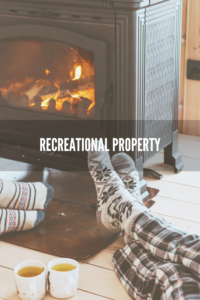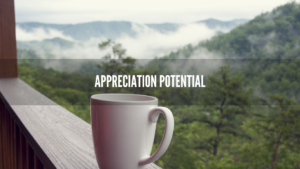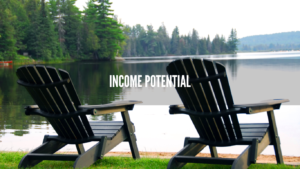Is a recreational property worth it? Let’s dive into 3 reasons why investing in a recreational property might be a sound financial move.

By the way, if you’re interested in recreational property for sale in BC – let’s connect!
When it comes to investing in real estate, many are drawn to the charm of recreational properties. Whether it’s a condo or a luxury estate home, the desire to own rather than rent can make a lot of sense.
Whistler is known for its majestic landscapes and top-notch amenities. From cozy slopeside cabins to stunning lakefront chalets, it is no surprise this lovely four seasons resort town stands out as a popular choice for a real estate investment among those who love to visit.
As a local realtor specializing in Whistler, I understand firsthand the benefits (and challenges) of owning a vacation home. And although it is not for everyone, my expertise is dedicated to helping my clients find the most suitable property, location, and features that fit their lifestyle, budget, and financial goals.
Ok, let’s dive in!
✔️This post was all about Recreational Property and the 3 reasons it is a good investment.
Recreational Properties, Good or Bad?
1. Location, Location, Location:

Whistler is a world-class ski resort, which draws in over 3 million visitors annually. It’s popularity and the consistent flow of tourists contributes to a steady demand for accommodation, making it an ideal environment for property appreciation. As an established premier destination for affluent outdoor enthusiasts, the long-term market outlook appears promising. Here are a few more considerations:
- Easy Access: Located just 2.5 hours north of Vancouver International Airport, Whistler is easy to get to and caters to both domestic and international travelers.
- Meticulously Planned: Built in the 1960s Whistler offers a charming village atmosphere, slopeside homes and luxury shopping & dining experiences. And with 46 kilometers of valley trails that knit the surrounding neighbourhoods together, it is easy to get around.
- Inventory Constraints: According to the Resort Municipality of Whistler, over 90% of its approved development capacity has been attained, totaling 61,600 beds. With community size and environmental impacts as prime concerns, new developments are limited. Due to restricted inventory, this typically leads to stable or increased property values.
2. Rental Income Potential:
Recreational properties in Whistler often serve dual purposes, providing both a personal retreat and an opportunity for rental income. That’s what makes them so appealing. Who doesn’t want a “fun” investment?
Owning a recreational property entails various costs beyond the initial purchase. From maintenance to property management fees. Let’s consider the potential operating costs.
The best investors are the ones that love visiting Whistler. Assuming you are a family of four who enjoy coming to Whistler at least 30 days of the year, your additional expenses associated with renting a vacation property may look this:
- Accommodations: $400/night x 30 nights = $12000
- Eating Out: $600 per day on restaurants x 30 days = $18,000
- Total Extra Spend = $30,000
Investors typically see a range of 2% to 4% cap rate (net return) on a hotel room or fully managed nightly rental property when assuming the owner is paying a management fee and operating expenses of approximately 40%, here is an example:
- Net Return to Owner of 2%-4% after all expenses.
- Estimated Net Revenue Earned on $1,000,000 x 3% = $30,000
In the above example, owning a revenue vacation property has the potential to offset some of the costs paid out for hotel accomodation and dining out. If you enjoy eating out no matter where you stay, then allocate the extra money to pay for ski passes or flights – either way it’s money in your pocket.
Somthing to think about:
Some properties breakeven, and some revenues are higher – it depends on the price you pay for the property, the efficiency of the management of the property and how much the property is used by the owner. For example, pay attention to owners who self-manage to save on management fees; inexperienced pricing can lower revenues. It is also important to check the dates a seller has used the property. If they prefer staying during the busiest weeks of the year, revenues will be lower.
Cap Rates
With income generating properties like hotel suites or properties zoned to permit nightly rentals, investors will look closely at the capitalization rate; the expected rate of return on a real estate investment. The cap rate is based on the anticipated income that property is expected to earn after all expenses.
Net to owner returns or cap rates have the potential to increase if owners negotiate lower management fees; some charge as low as 18%, or you can opt to self manage the property yourself, and save even more!
Why would you pay more for a property management company, when you can pay less?
With higher management fees comes more support. Some investors may live far away and may appreciate a fully managed turn-key property they rarely need to think about. While other investors may have experience in nightly rentals and, or enjoy being involved in the guest bookings to some degree. These budget-friendly vacation management providers will do a great job but require more owner involvement. Understanding the service model for your own situation and lifestyle is a key step to successful recreation property ownership.
3. Long-Term Appreciation Potential:

Whistler’s charm is timeless, but how does it fare in terms of long-term appreciation?
If you decide to purchase a vacation property solely for personal use, with cash that you could otherwise invest, there is an opportunity cost of not investing that money in other types of securities. And if you borrow money, there will likely be an interest cost.
That said, if we look at the median sale price in Whistler and the appreciation of real estate in Whistler over the last 10 years, we see an average annual appreciation of 8.423% per annum, not including net revenues (data source: Whistler Listing Service). When compared to the S&P 500 index, the historic annualized average return is around 12.02% over the last 10 years, ending in December 2023 (source: tradethatswing.com). If we add in the 2% to 4% cap rate we would likely earn if we rented the property, Whistler looks pretty good!
While we can’t predict the future, history tells a pretty compelling story of what we can realistically expect. Diversification is the name of the game with investing. And that goes for real estate investing too. I also recommend starting small to gauge your personal use. A property that you can easily afford will help to create those “happy” memories with your loved ones.
In Whistler, we see many clients start with a hotel room or condo, and after a few years of enjoyment take the equity and step up to a townhouse or duplex. This works well if your family is expanding and you need more beds for heads!
Recreational Property Conclusion:
While some might argue there are more lucrative investments other than recreational property, investors who love visting Whistler on an annual basis are provided a unique advantage; not only does it serve as a sound financial decision, but it also offers the opportunity to offset travel costs by having your own retreat. And one could easily argue, the lasting memories created with family and friends in a place you love enhances the intrinsic value of the investment, transforming it into a home away from home.
When does investing in a reacreational property not make sense? Some might challenge me on this, but I feel the best investors in recreational properties are the ones that enjoy using the property too. Vacation properties that are carefully selected for their charm, location or some other special feature also stand out to the guests that use the property. Turning your dream vacation into an investment the whole family can enjoy is for those that enjoy the journey just as much as the destination. And why not have both?!
☑️This post was all about Recreational Property and the 3 reasons it is a good investment.
Ready to explore recreational properties for sale in BC? Why not explore a vacation property in Whistler?
If you’re seeking the ultimate guide to Whistler real estate, look no further. Whether you’re a seasoned investor or looking to dip your toe into the Whistler market for the first time, allow me to equip you with the knowledge needed to navigate the unique landscape of Whistler’s recreational property market. Want to know more? Click the link below to schedule a meeting or phone call with me – Let’s connect!
This blog is Written by, Carmyn Marcano | Whistler Realtor 
Hi there! I’m so glad you are here. I’m a Real Estate Advisor in Whistler, Canada with Engel & Volkers and I am passionate about helping people discover this magical place to holiday, live, or invest. I am a city girl at heart, and relocating to Whistler from Vancouver was a big step for me. But Whistler has it all – it’s a small town of only 14,000 full time residents, but what keeps it exciting is the international flow of visitors. Whistler hosts some of the biggest sporting festivals on the planet and was home to the 2010 Winter Olympics. It is a world-class destination with small town charm – and I love it! I’ve lived in Whistler since 2016, and the culture here is built around the incredible lifestyle of the great outdoors and so you can enjoy where you live & work.
Watch my video to hear my relocation story to Whistler.

